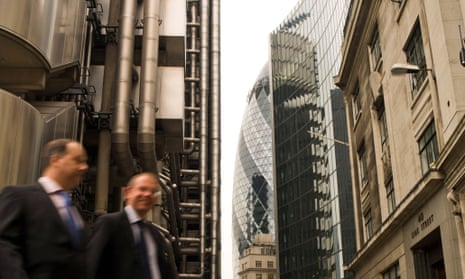As elections draw near, the discussion shrinks to one simple question: are you better off now than you were five years ago? Maybe we don’t need a TV debate after all. Other issues come out for an airing but in the end, no matter how passionate you are about the NHS, devolution, immigration or the environment, if you can’t talk competently about money, you’re nothing.
If instead, as Green party leader Natalie Bennett showed us recently, you go on the radio to outline your spending plans but have a brain fade or a touch of tongue-stroke or whatever it is she called that jumble of mouthfarts that came out as policy – if you do this, you’re cast to one side as an inadequate buffoon. This is no country for the uncosted.
Money is the root of all politics. It sounds so obvious it’s hardly worth writing down. Yet I was amazed by how shocked and surprised we were meant to be at that footage of Jack Straw and Malcolm Rifkind selling their services and talking hourly rates. The film made them look like two hungry foxes backed into a pile of brambles, a bunch of feathers in each mouth: but really, this was no different from what Rifkind and Straw’s bosses do all the time.
Suppose, instead, the secret filming had been of David Cameron, Nick Clegg, Ed Miliband and the entire government and opposition front benches sitting down in a dowdy, but very crowded, hotel room with a group of generous CEOs. Suppose also they started saying things like: “Look, I’m not promising anything but I can get you access to, well, me. I can have you sitting next to me at a dinner, if you like. If you can’t afford that I’ll certainly contrive to bump into you in a corridor or meet at a private party. But be assured I can have a word with my policy team about those tax penalties. I’m sure we could ‘simplify’ them a bit.” That footage wouldn’t be too far off what happens.
Any major political movement needs big money to fund it, and rich business people get access and influence proportionate to their party donation. Tory and Labour donors we read about all the time, but it’s worth remembering that the Lib Dems, SNP and Ukip also rely on the generous backing of the rich and tax-complex. If anything, Rifkind and Straw seemed to have committed the crime of being disarmingly frank and human. It was in stark contrast to the two representatives of HSBC who appeared before the Treasury select committee: they may have said they were embarrassed and appalled by what the Swiss branch of their bank did, but took no blame themselves.
Culpability is something big business doesn’t recognise. Nor is it something political leaders want to pursue. It has no market value. Banks fail, financial centres crash, Swiss branches help evasion, but no one is arrested or put in any kind of dock. Monoliths such as Vodafone come to gentlemen’s agreements with HMRC over reduced payments in back tax. Meanwhile, vans circulate telling foreigners to go home, posters go up telling us to snitch on benefit scroungers and letters are put through people’s doors warning them to get worried about their spare bedroom.
But dare to express a single doubt over the supreme rationale of having the business community running the whole show, and you’re derided as an economic nincompoop, unfit for office. We can launch inquiries into the police, the war and the press, but it’s the stuff of fantasy to imagine we’d ever launch a full-blown investigation into why our business community lives under permanent impunity. That’s because this belief that, fundamentally, we should all be like businesses, has expanded exponentially. It is political life itself. There’s nothing left. It’s taken on the status of an unshatterable truth: if we are to have any credibility, business is what we must do.
There’s no phrase more guaranteed to get a politician jumpy and defensive than: “This is bad for business.” If someone from a boardroom says it, Whitehall snaps into action to do something about it, Oppositions scurry to explain what they mean. Policies are swiftly adopted or modified, depending on exactly how “Bad For Business” the accusation implies.
It doesn’t happen when bishops say: “This is bad for poor people,” or health experts say: “This is bad for the mentally ill,” or tenants say: “This is bad for me and my family.” But somehow to be Bad for Business is an unquestionable wrong that must be righted before anyone has time to work out whether by Bad for Business they just mean Bad for their own Business, or even just Bad for their Shareholders.
There’s something sinister in how huge embarrassments for business can easily be deflected and reduced. Days after the HSBC story broke, the media had collectively been diverted to talking about Ed Balls’ window-cleaning receipts. Similarly, calls for a EU in/out referendum to happen as early as next year only really gained traction when business leaders piped in and said an early vote was needed to end financial uncertainty. Never mind that a two-year lead-up to a vote is required to allow time to negotiate reform or reach out to European partners (the very conditions on which a vote was predicated in the first). No: financial uncertainty trumps uncertainty over time or logic.
It used to be that we went into elections being asked some pretty big questions about what sort of country we wanted to live in. Did we aspire to free health treatment, safety at work, votes for women, a stronger navy, an end to child labour, higher standards of literacy, a welfare safety net, the dismantling of an empire, the nationalisation or privatisation of the nation’s resources?
For the first 70 years or so of the 20th century, politics debated the power and limits of the state: the manifestos of the parties reflected how much or how little each party felt the government should involve itself in the lives of the individual. Everyone accepted there was such a thing as society, and we were given regular chances to define it. Politics was about passion, and imagination, and foresight. Now it’s just accountancy.
From the early 1980s those grand but difficult questions about what kind of a society we wanted to build were replaced by a much more direct calculation: how much money could we make? Economics could still be dressed up as a moral passion for social improvement, crystallised in Margaret Thatcher’s assertion that the Good Samaritan wouldn’t have been able to be good if he didn’t have any money. This political recalibration was later undersealed by Peter Mandelson’s remark that New Labour was “intensely relaxed about people getting filthy rich as long as they pay their taxes”.
It didn’t matter that we stopped making things. Deregulating the financial sector allowed us to puff up a whole new industry we could then christen the new engine-room of the British economy. Politics and finance were one: business leaders trooped in and out of No 10 as frequently as heads of state. Some of them were made ministers. Politicians doted on business people; they swooned and twerked in front of billionaires; they ran after the likes of Richard Branson and Philip Green like giggling teens chasing Harry Styles down an alley and begging him to autograph their body parts.
Soon cabinet posts were filled by people with very little life experience outside politics but with a stark directive: talk about money, and run your department like a business. Education became all about getting us ready for jobs. Culture became a commodity that could be quantified by how much it fed into the economy. Health became a mysterious and un-debated obsession to turn our hospitals into market economies, where GPs are obliged to buy into the unquestioned belief that market forces can improve our wellbeing, and that doctors, nurses and paramedics can reduce a fever by competitive tender.
None of us knows where this mania for business practice comes from, or why it must be applied to every aspect of life. Every man is an island that has to be self-financing. This was articulated by Michael Gove who spoke in the Commons in 2013 of the 900,000 who use food banks as if their poverty could be reduced to the simple dynamics of a balance sheet: “I appreciate that there are families who face considerable pressures. Those pressures are often the result of decisions that they have taken which mean they are not best able to manage their finances.”
It’s so tempting to conclude that the subjugation of politics to business is just the political class prepping themselves for lucrative directorships and consultancies when their parliamentary career is over. I think that’s what we’re meant to take from the Rifkind and Straw story. Snouts in the trough, good ’uns gone bad.
I’m not convinced. My pet theory is that politicians with no real experience of work outside Westminster are paranoid that they don’t look grown up enough unless they act as though they run something. So they run things like business, since business is most of the outside world they encounter. The tougher they talk business, the less they’ll be laughed at by the grown-ups in boardrooms they meet daily. Outwardly, politicians act like company directors because inwardly they actually feel like eunuchs. I could be wrong. But if you think my theory pretty mad, consider how sane the reality is we have now.

